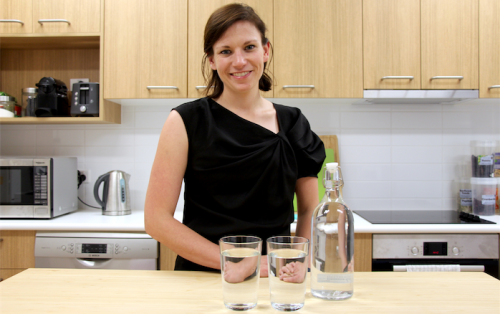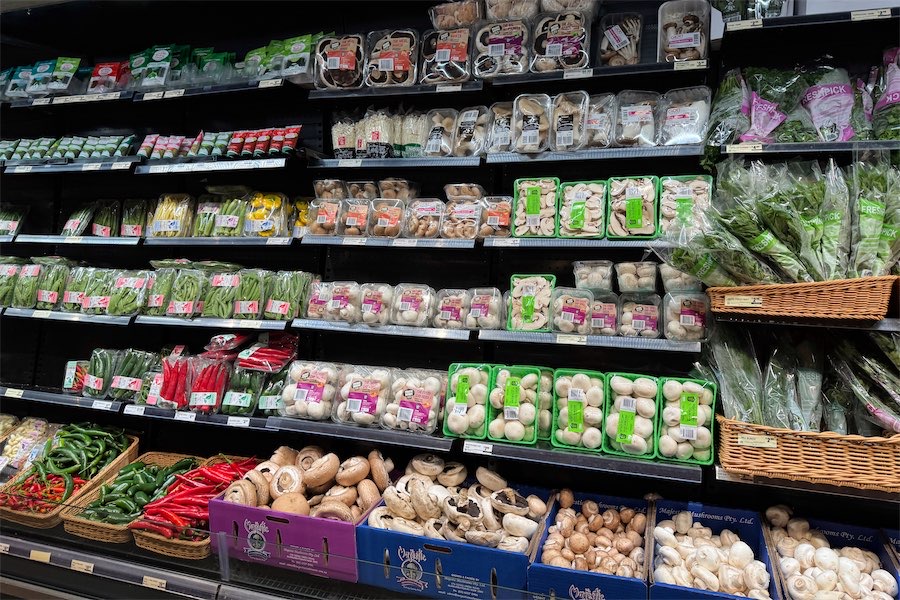
WHEN thirst kicks in many people think of the saying: “If you’re thirsty, you’re already dehydrated”, and lurch towards the nearest water source and start chugging into hydration.
But, The Healthy Eating Hub dietitian Clare Wolski says thirst isn’t always a sign of dehydration.
“It’s a misconception,” says Clare, 29, of Holder.
“Our thirst senses adapt. If you start to drink more water, you’ll feel thirsty more.”
And, bladders adapt, too.
“A common misconception is: ‘I’m drinking more, I’m just going to go to the toilet more’,” she says.
“For many people it will take a couple of weeks [for their bladders to adapt] but it may be longer if people struggle with severe urgency and frequency.”
But there are certain liquids, that while water-based, Clare says have a diuretic effect, meaning people need to put more in to make up for what’s coming out.
“Our major water beverages such as tea and coffee do still contain water but they can have a diuretic effect, which means we will excrete them more,” she says.
“Alcohol is a very high diuretic. When we drink alcohol, while we’re taking fluid in, we’re excreting more.”
Generally, Clare says, adults need to drink about 1.8-2.5 litres of water a day.
“It depends a bit on size and energy levels,” she says.
“But we should really stick to up around 2.5 litres in the summertime.
“Water can improve your energy levels and that’s quite important in the summer.”
When people don’t get enough water, Clare says it can affect concentration or they might experience headaches and fatigue.
“While we can get through the same tasks during the day, it feels a lot harder,” she says.
“Without enough water you can get constipation or have difficulty passing a bowel movement.
“From a scientific standpoint water is the building block of life on the planet. All life on the planet requires water.”
In fact humans are a large percentage of water (about 75 to 85 per cent), which Clare says facilitates all of human’s functions such as getting oxygen from the lungs to fingers and toes.
“The properties of water allow a lot of things to take place,” she says.
“Water is in about every single one of our cells.
“It allows all of our metabolic functions to take place.
“The better hydrated we are, the easier it is for your body to move nutrients and blood cells.”
For people who forget to drink water, Clare suggests making water accessible and having it at a temperature that’s enjoyable.
“That might be pairing anything you eat with a glass of water,” she says.
“If you do that with three meals and two snacks, you’ll get to about 1.5 litres quickly.
Some of Clare’s clients put times on their drink bottle so they might drink 600ml by 11am.
Personally, Clare is a bit of a “checklist junkie” so she has four 800ml bottles written in her planner, which she ticks off every day.
“If you don’t enjoy the taste of water you can make it a bit more inviting by putting things like berries or cucumbers or mint in it,” she says.
“You can also get some herbal and fruit-based tea and infuse it into cold water.”
Another great alternative, which Clare suggest, is mineral water.
“And there are infused mineral waters more and more that aren’t sweetened with no extra kilojoules or calories,” she says.
“High-sugar content in beverages doesn’t help much with hydration though.
“While the electrolytes in sports drinks can be good, often the sugar content that goes with it isn’t worth it from a calorie perspective.”
Luckily, Clare says fruit and vegetables count because a lot of them are largely water based.
She recommends salad vegetables such as cucumbers, capsicum and lettuce, as well as other vegetables such as green beans and zucchinis.
“From a fruit perspective, our high-water fruits would be watermelon, apples, rockmelon and citrus fruits like oranges,” she says.
Boost your mood, walk around the lake
Who can be trusted?
In a world of spin and confusion, there’s never been a more important time to support independent journalism in Canberra.
If you trust our work online and want to enforce the power of independent voices, I invite you to make a small contribution.
Every dollar of support is invested back into our journalism to help keep citynews.com.au strong and free.
Thank you,
Ian Meikle, editor





Leave a Reply